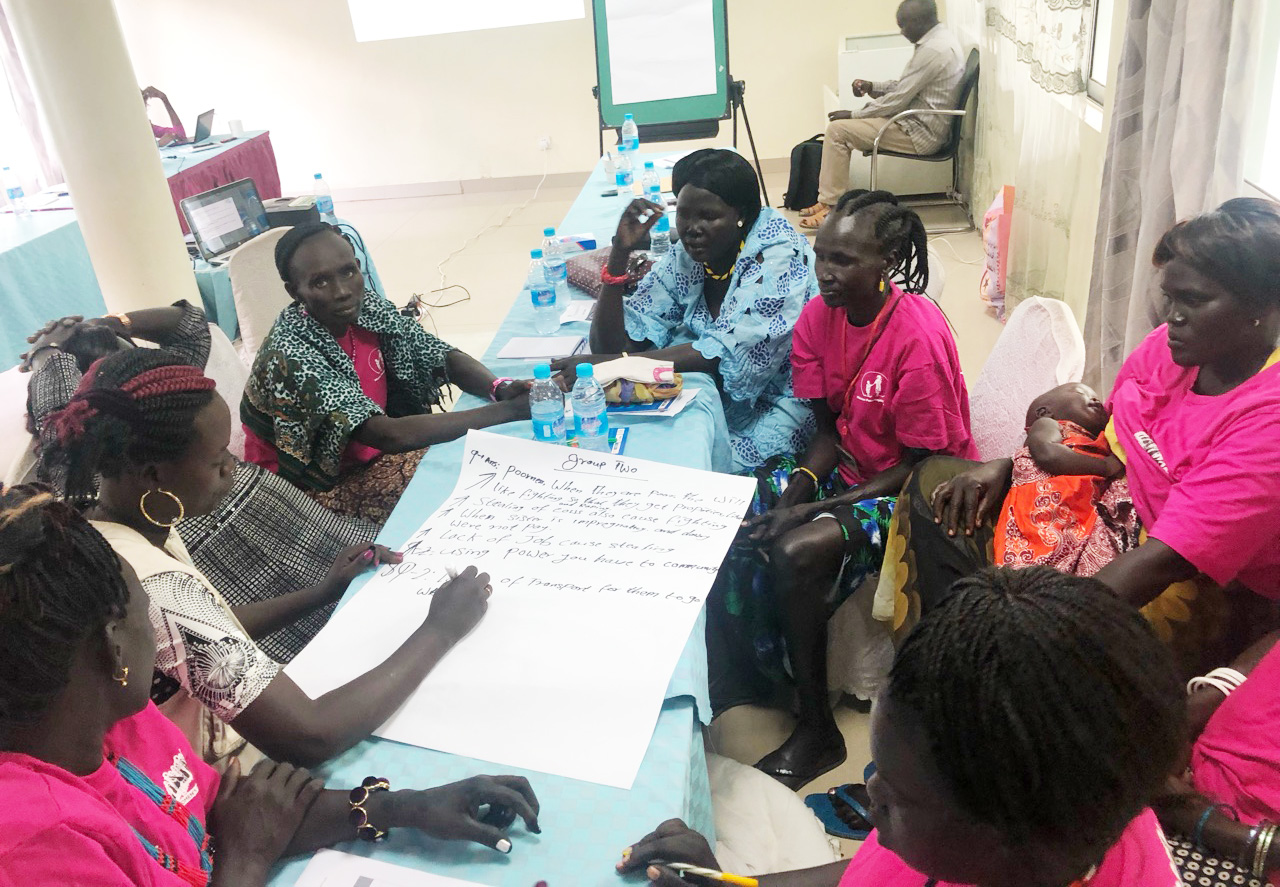The Fox Stopped Crying at Night
By: Mel Duncan
Hope has been scarce in South Sudan over the past five years. Eighteen months ago I (Mel Duncan) wrote:
Peace and security conditions in South Sudan have deteriorated rapidly since July 2016. Political progress has been extremely limited …violence continues across the country. The humanitarian situation has become increasingly dire, as the killing and mass rape of civilians, limits on humanitarian access, mass displacement, food insecurity, and the targeting of humanitarian workers are compounded by the rains and a cholera outbreak.
As I traveled around the country in early December I caught glimmers of hope in people’s stories for the first time in five years. The Revitalized Peace Process is having an impact. People reported that roads are safer. More shops are springing up. Some displaced people are returning home. Armed groups are abducting fewer boys. People are staying out later at night. Unarmed opposition soldiers can visit some government-controlled towns and not be attacked or arrested. An unexpected large crowd turned out for the peace rally in Juba on October 31, 2018. People are tired of war.
When I asked the Women’s Protection Team in Bentiu what was different about this agreement compared to earlier failed attempts, a woman exclaimed, “Forgiveness!” Later an internally displaced woman told me, “the fox stopped crying at night.” That meant animals have ceased to whimper out of fear, a sign that peace is coming.
The process is very fragile. Many spoilers lurk in the tall grass. A brutal mass rape took place while I was there. Armed groups are still recruiting. Most of the major details of the peace agreement remain unresolved. Profiteers are still getting rich off this war.
Our teams have a tough challenge as they work with local communities to help stabilize the foundation for peace. We will be supporting the Women’s Protection Teams, now numbering more than forty, to have their voices included in the peace process. The week before last I watched six of these teams come together for an advocacy conference in Juba, a place where many visited for the first time.
These representatives from six of the Women’s Protection Teams gathered to insert their voices into the peace process. While civil society groups in the capital are stepping up their participation, a gulf exists between Juba and many of the other areas of the country.
It was remarkable to watch women who had been treated as property realizing their agency. “South Sudan is ours. No one can come from outside and impose peace,” asserted another delegate.
The women, who spent two days preparing for the conference in advance, broke out of their isolation as they learned that other women throughout the country shared their problems. “Rape happens to them as well.” Their demands included a national network of women who would meet in various parts of the country, an end to gender-based violence and an end to tribalism over national unity.
For years, NP has worked to help build and support a foundation that could sustain peace. And at this meeting I saw the foundation transforming right in front of me. As one woman described, “We form ourselves and then NP comes and supports us.”
No doubt there will be more violence and suffering but women are learning that they don’t have to endure alone in silence. They can collectively organize, share their experiences, and change their reality. “It is we who can create a peaceful South Sudan,” concluded another delegate. They have come too far and given too much to turn back now.
While there are many vexing details, moving parts and opposing interests, this peace that this country is seeing and that its women are demanding, primarily relies on courageous people unifying to advocate and hold public officials accountable. People forging hope and offering forgiveness will sustain the peace. The people of South Sudan have shown remarkable resilience but I don’t know how they could withstand more suffering and bloodshed should war re-erupt again. False hope is crueler than no hope. Yet, that is not our call. We are there to stand with the people as they navigate their own realities. May we help keep the fox silent at night.
